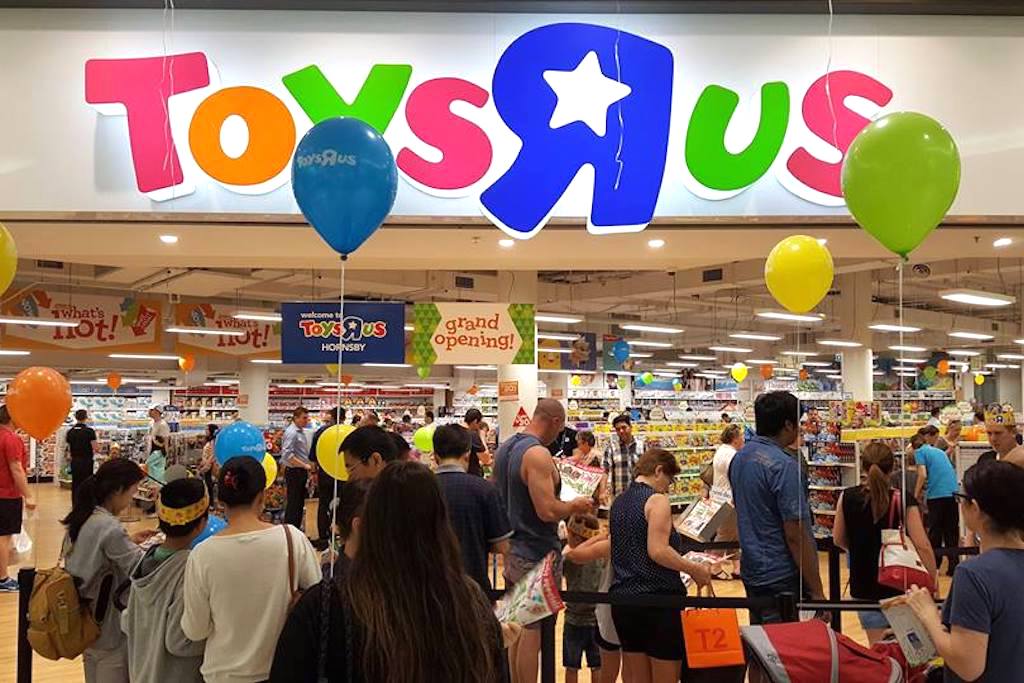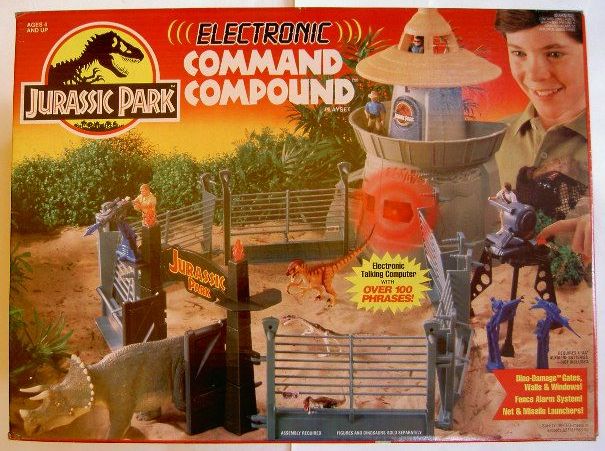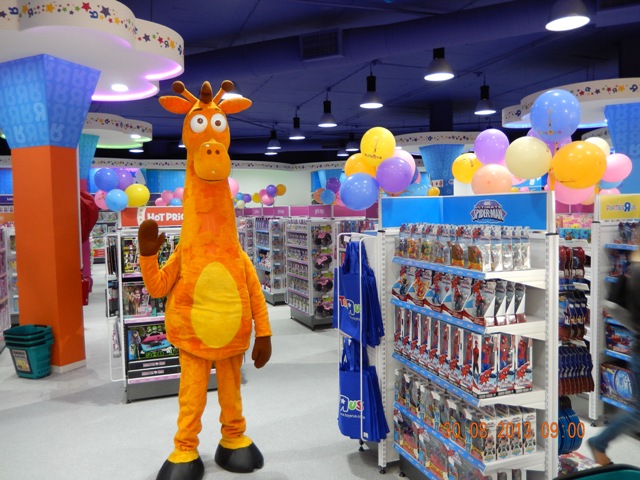An Ode To The Dweeby Magic Of Toys ‘R’ Us
Who needs friends when you have a plastic Batman, Spider-Man, and the entire cast of Jurassic Park?

Toys ‘R’ Us Files For Bankruptcy. The headlines hurt a little bit for me to read.
Of course, this news reportedly won’t mean much for the Australian chain. There were assurances that the local stores are still running smoothly and will continue for the foreseeable future. But still, as I read story after story this week, occasionally looking at my own toy collection, it hit me just how much this damn toy store chain has affected my life.
Growing up, I was unapologetically a ‘Toys ‘R’ Us Kid’: a young, impressionable child more obsessed with plastic things than playing outside or on any of the nascent video game consoles. I had a hard time at school and didn’t have many friends. But then again, why would you bother when Toys ‘R’ Us offered you amazing friends like Batman, Spider-Man, and the cast of Jurassic Park?

I grew to idolise the store that made writing a capital R backwards famous. The aisles of Toys ‘R’ Us represented a happier place, away from any stresses in my life. That feeling was only made stronger by the fact that — as a part of a migrant family struggling to get by — visits were few and far between.
Still, the days when I did go are all etched in my memory. Whether to get a new Power Ranger, or to trade Pokémon cards on a Saturday morning, every visit was a special occasion. The place never felt like a home — no place that cavernous ever can — but it did feel welcoming, like a familiar playground or creche.
This changed when I grew a bit older. Saturday mornings were then filled with soccer practice; toy boxes were replaced with a computer and a Nokia 3310. Still, I found my way back to Toys ‘R’ Us, this time as an employee. For my first job, I chose packing shelves at a toy store. Looking back, I wish I hadn’t.
Working within the confines of Toys ‘R’ Us destroyed some of the myth I’d built as a child way quicker than I had expected. From stacking shelves to handling anxious parents and children, the curtain had been pulled back from the metaphorical land of Oz, exposing the machinations inside. Although I was older, there was a bit of me that probably got some lasting damage in the process. I left the job after just a few months.

These days, I’ve circled back to collecting toys. However, I focus more on vintage or imported high-end figures; stuff that’s both hard to get and is too expensive for any average person (including myself). Toys ‘R’ Us no longer caters for me, even if my interests remain mostly the same. The real target market are kids like my six-year-old nephew.
Cynics will say that Toys ‘R’ Us’s bankruptcy is proof today’s kids just don’t play with toys anymore, instead addicted to video games and mobile apps. But my nephew’s bedroom, full of Lego and Beyblades, begs to differ. Rather, it’s not how they’re playing that’s changed, but how the parents buy things. His mother — my sister — willingly admits that buying online is not only easier for her, but for him as well; there’s less tears and tantrums involved, and my nephew already has an online wish list for Christmas (kids are nothing if not innovative).
For all the memories, both good and bad, Toys ‘R’ Us reflects a unique moment in time.
It’s this market that many pundits agree Toys ‘R’ Us lost: the young Gen X and Gen Y parents who do most of their shopping online. It’ll arguably get worse once Amazon, with their fast delivery, easy-to-navigate website, and plethora of options in every category, opens locally. Our Australian toy stores have already changed drastically. More floor space is being offered to the profitable baby section every year, they no longer sell video games, and some of the stores I remember from my childhood simply don’t exist anymore.
But for all the memories, both good and bad, Toys ‘R’ Us reflects a unique moment in time. The brand’s ubiquity in pop culture places it amongst other fading luminaries like HMV and Borders. And like those big ticket record and book stores, their loss signals a true shift in the way we consume and engage with culture. The nostalgic memory of walking through toy aisles and spotting That One Toy that had to be yours, whether it was a Barbie, a Lego set, or brand-new bike, is a memory that has been a part of our collective childhood for generations now. But with the convenience of online shopping, a memory like that simple won’t exist for future generations.
From a more cynical, socio-political standpoint, you could say that Toys ‘R’ Us merely rode the wave of ‘80s neoliberal commercialism — where blatant marketing to children was a-ok — towards success. You could say that its eventual downfall at the hands of new technology was inevitable. But for me, Toys ‘R’ Us, with it blaring kids music and giraffe mascot, represented both the sugar-filled highs and the disappointing lows of childhood. No matter what happens in the future, a part of me will always be a Toys ‘R’ Us kid.
–
Feature image: Toys ‘R’ Us/Facebook.
–
Albert Santos is a Sydney writer. You can find them on Twitter here.